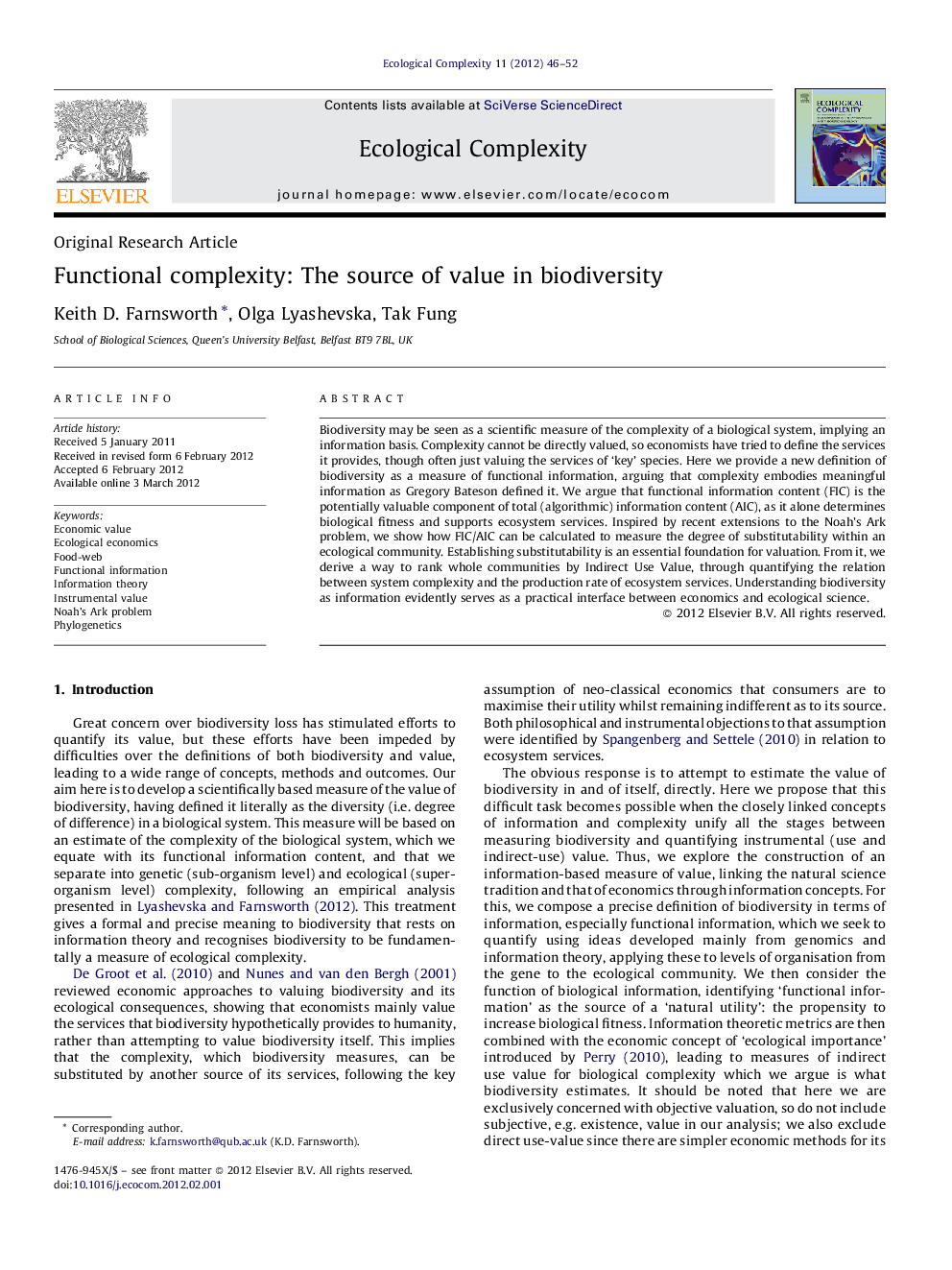| Article ID | Journal | Published Year | Pages | File Type |
|---|---|---|---|---|
| 4372537 | Ecological Complexity | 2012 | 7 Pages |
Biodiversity may be seen as a scientific measure of the complexity of a biological system, implying an information basis. Complexity cannot be directly valued, so economists have tried to define the services it provides, though often just valuing the services of ‘key’ species. Here we provide a new definition of biodiversity as a measure of functional information, arguing that complexity embodies meaningful information as Gregory Bateson defined it. We argue that functional information content (FIC) is the potentially valuable component of total (algorithmic) information content (AIC), as it alone determines biological fitness and supports ecosystem services. Inspired by recent extensions to the Noah's Ark problem, we show how FIC/AIC can be calculated to measure the degree of substitutability within an ecological community. Establishing substitutability is an essential foundation for valuation. From it, we derive a way to rank whole communities by Indirect Use Value, through quantifying the relation between system complexity and the production rate of ecosystem services. Understanding biodiversity as information evidently serves as a practical interface between economics and ecological science.
► Defines biodiversity so as to allow objective indirect-use valuation; interfacing science with economics. ► Biodiversity is functional information content (FIC), estimated by complexity measures, based on non-random information. ► Substitutability is defined as FIC divided by total information content. ► These principles are illustrated with the practical example of a marine fish community.
